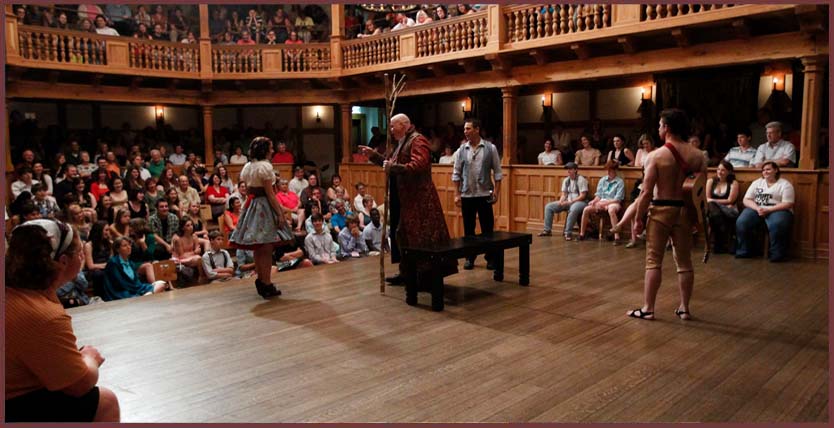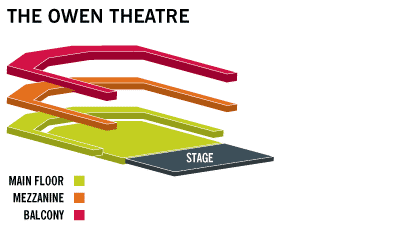When justice is absent, we may call it injustice. We notice injustice immediately, and it treats our internals as roughly as the worst weather treats our skin. Injustice twice corrupts: it corrupts the offender, but it also corrupts the offended. For even the mere fear of being a victim of injustice can corrupt the spirit; to avoid the possibility of injustice, we buckle, dodge, and coerce others.
Justice might be complicated in description, but it is simple in practice.
Justice through friendship, or not at all.
For this reason, I prefer theater when we make it with friends. The more formal the relationship, the less satisfying I find it. Formal contracts can help preserve friendships, at times, such as when individuals promise each other a certain level of effort or resources. But on the whole, we need to want to see each other succeed; minimize each other's flaws, and maximize our strengths; we need fellow theatre-makers that excuse us for being human.
It is not a close secret that more than one type of drama occurs in the classrooms and hallways of theater programs. Actors, though friends, compete fiercely for roles. Directors scramble for opportunities to practice their craft. Artists, often despite their own intentions, struggle to place themselves in a hierarchy of accomplishment. I've never wanted to get involved in that fray. I figure if I'm going to shallowly scramble for status, I might as well do so on a professional basis, rather than an academic one. And as of yesterday, I have never been so glad that I did not attend a master of fine arts program. Or earn an undergraduate degree in theater.
My good friends in UT's Theater and Dance Department have offered me a lot of support over the years. Most recently, they produced THE PRICELESS SLAVE at the Cohen New Works Festival. They find themselves enveloped in a scuffle about 'main stage programming.' A similar fracas occurs in any academic theater department, but its probably exacerbated by the unique tensions at the University of Texas. The department has two 'main stages.' One is a large, acoustically vibrant proscenium, and the other is a large, sound-sucking black box. But the department only puts on a handful of shows each year: a couple of dance pieces, and then a short list of musicals or plays. Ostensibly, all the material serves an academic purpose within the department, and also helps train the students for the professional world of acting, directing, set design, lighting, etcetera.
To select its yearly program, the department uses a semi-inclusive process that is subject to veto from the departmental chair. A committee of faculty and faculty-friendly students informally surveys the department, and then talks out a list of shows for the coming academic year. They suggest shows that they want to see, and shows they want to perform in. Then the chair of the department looks over the list; he scratches some, adds others, and bounces the list back to the committee. Not everyone is happy with the results. Then actors audition, and 'artistic teams' are put together to work on specific productions. The process is not quite democratic, but then again, not much about art or academics is democratic.
While one could probably improve the selection process to better fit the department's diverse preferences, it seems that the real difficulty lies in the limited programming slots available. When there are only a handful of shows each year, the stakes are raised tremendously for each and every show that makes the slow, painful, pitiable journey to appear before a live audience. Inevitably, the high-stakes process will leave many artists and students out in the cold. Increasing the number of programming slots (and decreasing the amount of funding each one receives) would lower the stakes.
More aggressively, it appears a sickening waste of space that two venues in central Austin lie vacant most weekends. Increasing the number of production slots would reduce the nights when fertile ground lies fallow. Doubling the number of productions (or quadrupling) (or more) would lower the stakes, increase occupancy rates, and might even lead to more risk-taking. The stakes are much too high for each show right now (artistically, educationally, and economically). It seems madness to continue on the current path of severely limited programming.
Increasing the number of production slots would also speak to the interests and habits of some of the younger artists on the faculty. They prefer rough and tumble shows that take chances, mix genres, and dash through diverse landscapes without blinking an eye. They do not want to make or see clunky classical revivals that fail to match the technical achievements of Broadway, Chicago, and London, or that attempt to compete with the narrative powers of film.
But the Old Guard in many faculties enjoys the stoic, steady and patient pace of limited programming with well-made plays. Good acting, to a certain set, means talent and training, both of which require strong material with which to play. A new, messy, incomplete play coarsens the fragile taste of young actors, whereas a masterfully written play can guide the actors towards greater heights of imagination and nuance. There is something to be said for this approach.
Still, the number of production slots must increase. Perhaps we can increase the number of performances without abstaining from producing well-made plays for the sake of 'new work.' Resurrecting the term 'repertory season' might bridge the distance between the Old Guard and New Guard faculty members, and aptly describe the policy of increased production slots. A repertory season could prejudice efficiency over perfection, craft over product, and cooperation over competition. And perhaps a repertory season might grant a lovable, forgivable and expected rough edge to the main stage productions. For the love of God, mis amigos, it is student fucking theater. In Texas. Of course it has rough edges. If you're not falling down and skinning your knee once in a while, you're probably not running fast enough.
I began this essay with a note on injustice. I now return to that theme to look at the particulars of the season.
This year's scruffiness began with In the Heights, a sort of hip hop musical. I dislike musicals. I suppose I get as emotionally involved as anyone else, but I dislike their cheap narrative tricks and manipulative scores. The show Les Miserables, for example, shoots an impoverished child on stage, mid-song; everyone cries; but it is a cheap ploy, and too easily staged. It is far more challenging and necessary to show the slow degeneration of life that shadows all instances of extreme poverty. But in Les Miserables, they shoot the kid. As they shoot the boy, and tears creep into my eyes, I want to punch Trevor Nunn (the English progenitor of the scene) for his vulgar manipulations. (Musicals are pornography, but for the emotions instead of the libido).
I've been told that this particular musical (In the Heights) was chosen to speak to the growing number of Texas Latinos that attend the University of Texas. If this was the justification, I'm not sure it made sense in the first place. The 'Heights' in the play's title refers to Washington Heights. Washington Heights is in Manhattan. Manhattan looks and feels a little different than the Rio Grande Valley or suburban Dallas, or even inner city Dallas.
When it came time to cast the play, my Hispanic friends in the department were pretty engaged with the idea. Obviously, the kids who attend a theater and dance program like to be on stage (even if it involves singing and dancing). The powers that be decided not to cast any of my friends in the play. The department decided that due to a dearth of talent within the department, they would offer several roles to actors from outside the university.
This set off an alarm. It does not matter whether or not the alarm attested to technical instance of injustice in the minds of people casting the play--when it comes to injustice, the feeling is everything. And the casting decision blatantly demonstrated that the department was more interested in 'putting on quality programming' than developing or training the students that walked through its doors. Further, it fed a fire that burns throughout Austin, Texas--it's impossible not to notice the imbalances between actors of color and 'white' actors in this city in terms of opportunity and exposure. Supposedly, those casting the play subsequently increased the number of student actors involved in the project. But now it is too late. As soon as they made the mistake, they should have cancelled the damned musical and started from scratch.
Of course, In the Heights is not the only play the department will perform this year. The other plays fall into a broad category that I call "shit that other people have done well, but that we can probably do okay." Our Country's Good, Dial M for Murder, Dead Man's Cell Phone. Austin Playhouse and ZACH Theatre put on similar plays, but with big-kid actors and easier parking. Student theater clubs also put on similar programming, but with cheaper tickets, lower expectations, and smuggled liquor.
I have been around Austin since 2005. That's not all that long. But it's long enough to know that there have always been conflicts over these departmental shows at UT Austin. The programming has always been as flat and as warm as an old can of Coke. It is not the selection process that is at fault. A strong, autocratic leader can put together a good program. A broad, diverse coalition of voices can also (though more rarely) put together something interesting. But there must be room to fail. Increasing the number of production slots is the only way to go.
A smaller university in town, Saint Edwards, puts on a series of four or five plays that typically resemble, in spirit, the plays appearing at UT. But I think Saint Edwards succeeds where UT fails. Why? Conditions are different. They emphasize acting over set design. They only use one black-box, and it never changes format. The theater only holds a handful of patrons at a time. Saint Edwards consistently mixes Equity actors into its productions. Saint Edwards only has a handful of students for whom they must provide roles. Saint Edwards does not allow student directors, thus granting more consistent directing opportunities to their faculty to keep their skills fresh. In short, and for a lot of unchangeable reasons, Saint Edwards puts together a program that I find more rewarding than what appears in my own forty-acre neighborhood. This has nothing to do with talent, and everything do with broader structural conditions.
I love my friends at Texas, and I am sure that as the months go by, they will find solutions that restore the tenor of justice to their program. Break legs. I am glad I do not have to go to any of the formal meetings--I much prefer working on art outside of UT's academic boundaries. As the fracas develops, I hope to see a diverse set of productions that breathlessly move from one imaginative landscape to another. Play. Play. Play.



 RSS Feed
RSS Feed